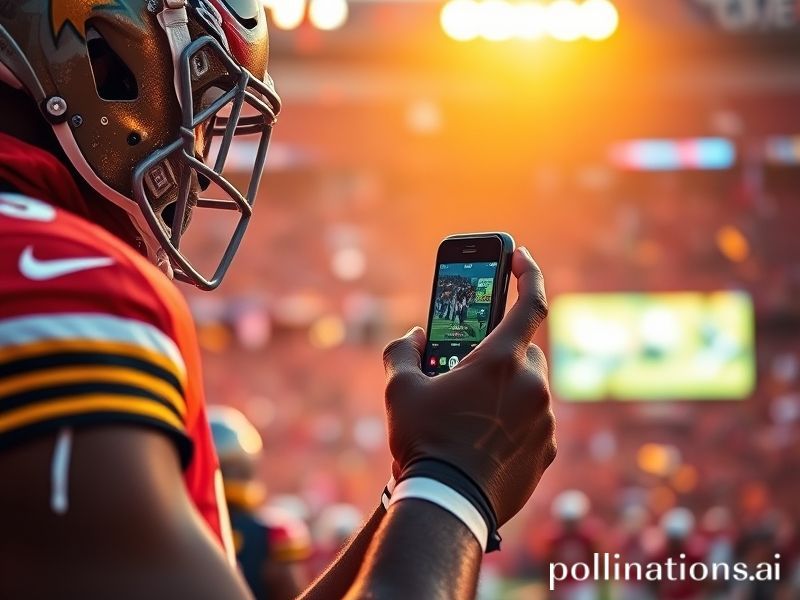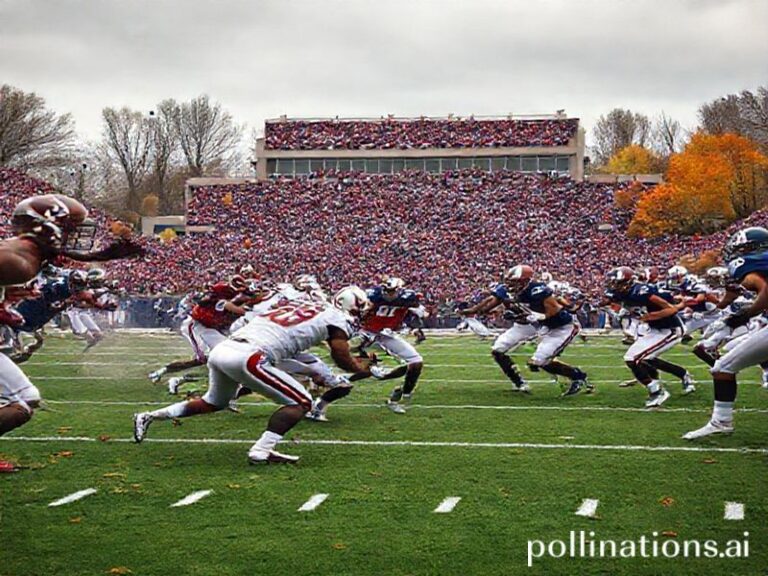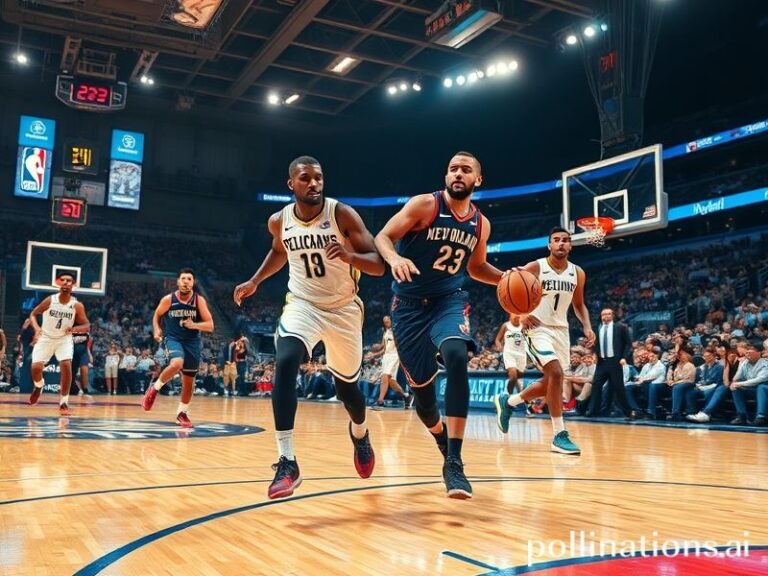NFL Plus: How American Football Is Quietly Colonizing Your Wi-Fi
NFL Plus: The Empire Streams Back
By Dave’s Locker Global Correspondent
PARIS—Imagine, if you will, a planet where 330 million Americans huddle around glowing rectangles every Sunday, convinced that the fate of a leather spheroid is the axis on which civilization spins. Now picture the National Football League—an outfit so patriotic it could make a bald eagle blush—deciding the rest of the world might also enjoy paying monthly tithes to watch large men concuss each other in 4K. Thus was born NFL Plus, the league’s shiny new streaming service, launched last season and expanding faster than a defensive lineman’s waistline after retirement.
For the uninitiated, NFL Plus is essentially American cable television’s middle finger to geography. Fifteen U.S. dollars a month buys you every regular-season game on mobile, plus replays, radio calls, and the option to watch the Super Bowl while pretending to work from a Lisbon co-working space. International Game Pass still exists, of course, but at a price calibrated to make European fans feel like they’re financing a small warlord. The message is clear: if you live outside the Lower 48, you’re either affluent or you’re pirating—there is no moral middle ground.
The global implications are deliciously absurd. Consider the United Kingdom, where Brexit was sold as reclaiming sovereignty yet Britons now gratefully surrender their pounds to an American sports-industrial complex that refers to London as “our overseas suburb.” Or Germany, a country that spent seventy years cultivating pacifism and is now importing Kansas City tailgate culture, complete with beer that tastes like carbonated regret. Tokyo salarymen sneak peeks at games during last-train commutes, silently praying the 49ers cover the spread so they can afford next month’s rent. Meanwhile, in Lagos, data bundles hemorrhage naira as teenagers live-stream RedZone from rooftop shacks, proving once again that bandwidth is the opiate of the masses—especially when it comes with a Jim Nantz narration.
The darker joke lies in what NFL Plus reveals about modern fandom: loyalty is no longer tribal but transactional. Fans in São Paolo wear Bills jerseys because Josh Allen’s fantasy stats outperform the Brazilian Real. Delhi office pools are settled in cryptocurrency to avoid the Reserve Bank’s prying eyes. Even the league’s vaunted military flyovers feel oddly performative when streamed on a cracked iPhone in a Syrian refugee camp, where the roar of F-16s is less patriotic than déjà vu. Somewhere, a marketing executive congratulates himself on “global reach,” blissfully unaware that reach and grasp are two very different exercises.
Technologically, NFL Plus is both marvel and menace. Its adaptive bitrate is smoother than a lobbyist’s compliment, yet it hoovers personal data like a Hoover on amphetamines. European regulators, still dizzy from years of GDPR trench warfare, watch helplessly as Yank servers gobble location, watch habits, and snack preferences—metadata later resold to betting apps that spam Maltese teenagers with “risk-free parlays.” In Russia, the service is geo-blocked, so fans VPN through Moldova, creating a digital samizdat of end-zone angles and Griddy dances. Nothing says Cold War 2.0 quite like a Muscovite pretending to be in Chișinău just to watch Aaron Rodgers sulk.
And what of the league itself? Having conquered domestic television, the NFL now eyes the planet the way Caesar once eyed Gaul, albeit with better licensing deals. Commissioner Roger Goodell speaks of “growing the game,” which is corporate Latin for “growing the revenue.” The real growth, however, is in cognitive dissonance: we export football to countries that still play actual football, insist the sport is family-friendly while selling alcohol breaks every four minutes, and preach player safety as linebackers evolve into human torpedoes. If irony were a PED, the entire league would be suspended.
Conclusion: NFL Plus is less a streaming platform than a geopolitical Rorschach test. To Americans, it’s convenience. To advertisers, it’s eyeballs. To the rest of the globe, it’s yet another reminder that late-stage capitalism will monetize anything—even brain trauma—provided the camera angles are crisp. Somewhere in the metaverse, a virtual Al Michaels is already calling games for an audience of NFT avatars, each wondering whether the next touchdown matters more than the melting ice caps visible just outside the VR headset. Spoiler: it doesn’t. But the over/under on humanity noticing is 3.5 centuries, and the smart money’s on the under.







